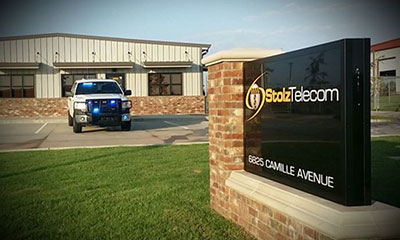By Luke Wilkinson for Security Journal UK.
Legacy radio systems have had their day. Security providers for public spaces and major events are now able to tap into powerful new technologies for critical communications to boost safety and productivity.
The growth of mobile networks means security firms at last have a robust and reliable alternative when looking after the safety of large numbers of people. Their control rooms can communicate instantly with lone workers and groups in the field at the push of a button. They can access a host of features and applications far beyond the capabilities of the old-fashioned radio systems that have long dominated the market.
Let’s not forget those legacy radio systems can be eye-wateringly expensive. Take the Airwave emergency services network as an example. The UK competition watchdog had to impose a price cap on Motorola, the owner and operator, to stop it overcharging the taxpayer by £200 million a year. The Home Office is eventually moving to a new emergency services network based on 4G on the basis that legacy radio systems like TETRA cannot match the opportunities of new mobile technologies.
What’s more, legacy radio systems have suffered supply chain issues in the fallout from the pandemic, with a global shortage of chip components limiting the ability of suppliers to meet demand.

To illustrate the trend towards new technologies, Leeds Bradford Airport recently became one of the first airports in Europe to make the switch from a legacy radio system to what we call push-to-talk over cellular (PTToC) for its critical communications. Yorkshire’s largest airport is using Mobile Tornado technologies for instant communications with individuals and groups of workers to improve safety, efficiency and productivity in complex daily operations.
Damian Ives, chief operating officer at LBA, explained: “We are investing heavily in people and technology to make sure that passengers have the best possible experience when travelling through Leeds Bradford Airport. Mobile Tornado’s world-leading technologies will help us to manage operations and achieve our ambitions.” The contract was secured by Storm, a key reseller of Mobile Tornado technologies in the UK and is initially for 200 user licences.
The agreement with one of the UK’s busiest regional airports represents a big vote of confidence in push-to-talk over cellular for critical communications. We see airports as an important growth market and just one step away from emergency services with their public safety requirements. It is just a matter of time before the first blue light service makes the move. Indeed, we are pleased to report that trials are under way with police and fire services at two western countries.
Push-to-talk over cellular is not just for critical communications. It also helps organisations to manage their workforces more effectively. Earlier this year, Mobile Tornado launched what we believe is the world’s first push-to-talk over cellular platform with integrated workforce management. This includes attendance and time monitoring, forms and checklists, reporting, scheduling and task creation. Security firms can spend less time on paperwork and gain new insights into their business performance.
In addition, managers can use a browser-based dispatch console to command and control security operatives in the field. The console enables live location monitoring, historic location tracking and reporting of users via an interactive map. Managers can create geo-fences and receive notifications and reports when operatives enter or leave an area. Users can alert other users at the touch of an SOS button to trigger emergency assistance. Other features include time and attendance monitoring, guard patrol and incident reporting.
Knowing where each and every operative is located at any given time can improve safety, response times and decision making. Emergency alerts, activity monitoring and impact detection provide an extra layer of protection for individual operatives. And being able to remotely locate and manage operatives and communicate with them instantly can boost efficiency and productivity.
Mobile Tornado is listed on Aim and headquartered in Harrogate, North Yorkshire. It has established a customer base across Europe, the Americas and Africa through a wide network of trusted resellers. The company’s technologies are already deployed in more than 30 countries worldwide with mobile operators, government agencies and private enterprises.
In our home market, we have partnered with CSE Crosscom, one of the fastest-growing communications companies in the UK. CSE Crosscom provides communications solutions for demanding environments and partners with the world’s most advanced technology manufacturers. It serves customers in the events, education, facilities management, healthcare, leisure and hospitality, manufacturing, rail, retail, sporting venues, utilities and construction sectors. CSE Crosscom will be key to our growth in the UK.
In Eastern Europe, we have announced an agreement to supply Civitas Group, one of the biggest security firms in Romania. The company will use our push-to-talk over cellular and workforce management technologies to help protect critical infrastructure across the country on behalf of a major oil, gas and petrochemicals client in a deal secured by Storm. Civitas is a highly respected provider of security services to blue chip clients and their interests across Romania and its fast-growing economy.
In the United States, we have partnered with Stolz Telecom, a provider of innovative telecommunications services and leading-edge business technology to the public safety and enterprise sectors. Founded by a former FBI agent, Stolz Telecom is based in Oklahoma City, Oklahoma and Denton, Texas and develops customised, cost-effective and high-quality mission critical communications solutions for entities nationwide.
Robert Stolz, president of Stolz Telecom, said: “Our vision is to create safer, more proactive organisations by redefining the boundaries of critical communications. We are excited to be able to offer Mobile Tornado’s world-leading solutions to our customers, the people who keep our communities safe.”
In Latin America, we have expanded our presence by moving into the new markets of Guatemala and El Salvador with regional business partners Grupo Atención, the reseller, and Claro, the Latin American carrier for telecoms giant América Móvil. Mobile Tornado already has a strong user base in Colombia and Mexico. We are planning to expand further into countries like Costa Rica, Honduras and Nicaragua.
In the Caribbean, one of our partners signed a contract with a prominent mobile network operator in 2022, initiating trials and discussions with numerous customers across various countries.
As mobile networks have evolved, so have opportunities for critical communications technologies. Investment in infrastructure has shrunk the coverage gap from a third of the global population to just six per cent over the last decade, according to the GSM Association. The industry group predicts that 5G networks are likely to cover a third of the world’s population by 2025.
Mobile Tornado has a system availability of 99.999 per cent and switches seamlessly between 2G, 3G, 4G and 5G mobile and broadband networks. Without getting too technical, we use advanced compression techniques that minimise bandwidth consumption while maintaining high quality voice and data transmission.
Mobile Tornado is available via smartphone application for Android and iOS operating systems and the latest ruggedised devices. Specialist devices include tablet, screenless, vehicle and bodycam – which is useful for increased transparency.
Earlier this year, the company completed a fundraising round to support the scaling up of sales, marketing and business development activities. We are targeting sectors that depend on instant, robust and reliable communications between individuals and groups, such as security firms.
We believe change is coming and security providers for public spaces and major events can benefit from this trend as we say goodbye to the past and hello to the future of critical communications.
* Luke Wilkinson is global head of sales at Mobile Tornado




